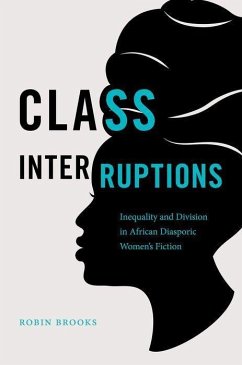"As downward mobility continues to be an international issue, Robin Brooks makes a timely intervention between the humanities and social sciences by examining how Black women's cultural production engages debates about the growth in income and wealth gaps in global society during the late twentieth and early twenty-first centuries. Using an interdisciplinary approach, this innovative book employs major contemporary texts by both African American and Caribbean writers--Toni Morrison, Gloria Naylor, Dawn Turner, Olive Senior, Oonya Kempadoo, Merle Hodge, and Diana McCaulay--to demonstrate how neoliberalism, within the broader framework of racial capitalism, reframes structural inequalities as personal failures, thus obscuring how to improve unjust conditions. Through interviews with authors, textual analyses of the fiction, and a diagramming of cross-class relationships, Brooks offers compelling new insight on literary portrayals of class inequalities and division. She reconceptualizes the scope of the Black women's literary tradition since the 1970s by repositioning the importance of class, and she explores why the imagination matters as we think about novel ways to address long-standing and simultaneously evolving inequities"--
Hinweis: Dieser Artikel kann nur an eine deutsche Lieferadresse ausgeliefert werden.
Hinweis: Dieser Artikel kann nur an eine deutsche Lieferadresse ausgeliefert werden.








